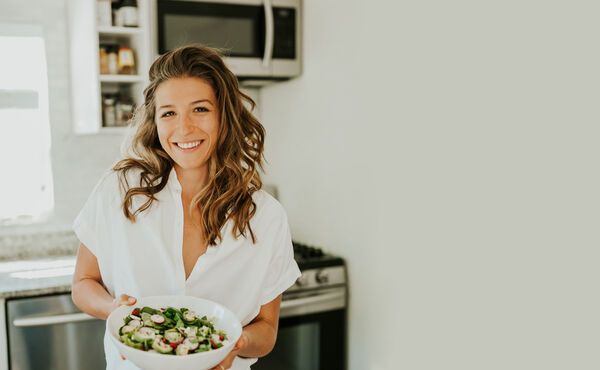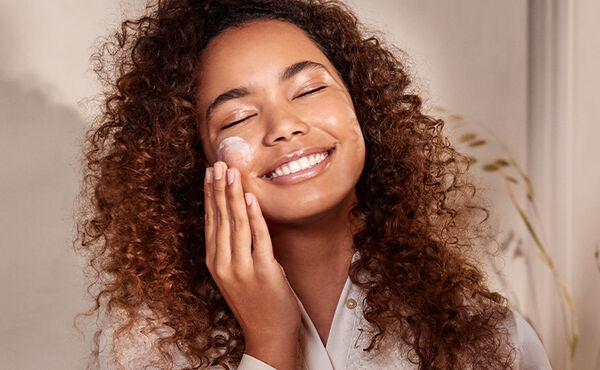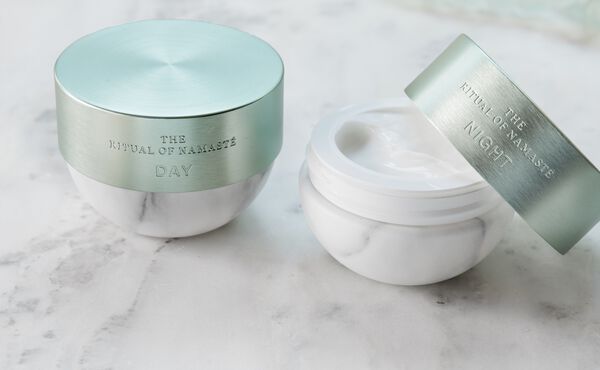Skincare expert and facialist Abigail James helps you put together the perfect skincare routine—from essential to extended.
If we want results from our skincare, it requires a little commitment—it takes more than your standard cleanse, tone, moisturise. Ideally, you need a morning and evening routine. But with so many different products out there and so much confusion about when to use what and for which skin type, I know it can be difficult to build a good routine. Once you manage to get it right, you are going to get the most out of your skincare, so let me help you put together a routine to make the best choices for you.
Essential skincare routine
An essential routine will vary slightly depending on skin type and concern, but essentially it should consist of cleansing morning and night, a treatment product such as a tonic, serum or toner which could be used morning and/or night, plus a moisturiser.
An essential skincare routine could consist of the following:
Morning
- Cleanse
- Serum
- Moisturiser
Evening
- Cleanse
- Exfoliate
- Serum
- Oil
Extended skincare routine
A comprehensive routine might be something like this:
Morning
1. Cleansing
This could be done with a gentle wash, cream, oil or balm dependent on your skin type.
2. Tonic
A tonic helps to balance the skin’s PH and provide an extra layer of hydration. When the skin’s moisture levels are high, all of your other products will absorb more effectively.
3. Serum and/or ampoule booster
These are the products with the highest levels of natural actives, which usually penetrate further into the skin.
4. Eye product
Eye products are designed to treat the delicate skin around the eye area and tackle the key concerns: lines, puffiness and dark circles.
5. Day cream
This hydrates and nourishes the top layers of the skin to protect and prevent them from feeling dry.
Evening
Pre cleanse – Micellar. A super quick makeup-removing product to help melt whatever is on the surface of the skin. A Micellar might look like a toner, but it’s definitely not. It needs to be used as a pre cleanse, not an after cleanse.
1. Cleanse, cream / oil / balm
Whichever you go for, these types of cleansers are perfect for treating dry skin, a first cleanse, and removing pollution.
2. Double cleanse (optional) with a wash
A gentle wash with water which gives the skin a slightly deeper cleanse without stripping.
3. Exfoliate
Depending on its texture and formulation, an exfoliation gently removes the dead skin cells from the surface to give a smoother, brighter appearance to the skin. It encourages better product penetration and cell renewal.
4. Tonic
(as above)
5. Serum / ampoule booster
(see above)
6. Oil, balm or cream oils
Balms are packed with essential fatty acids and natural vitamins that nourish and restore the skin.
When applying your skincare, whether it’s in the morning or evening, I would always apply the finest, most watery texture first and the thickest and oiliest last. Any oil on the skin will slow down the penetration of the actives in water type products. So, once the skin has been cleansed, apply a tonic and then an ampoule.
If you are going to apply a serum, I would do this after an ampoule, and then apply a moisturiser after the serum. If you are particularly dry, it’s also lovely to add a drop of face oil to your cream.
.jpg?sw=600&sh=370&sm=fit&cx=0&cy=164&cw=6574&ch=4054&sfrm=jpg)
Extras
As added extras to this core routine, you might choose to add an exfoliation 1 to 3 times per week. This is not necessary if you are super sensitive, but it is a great way of keeping skin smooth and fresh.
- A mask once a week in the evening is a great way of giving the skin a boost. If you’re more prone to oily skin, you might choose a charcoal mask. If you need hydration and vibrancy, the AHA mask is perfect.
- Once a week, I also love doing a face massage with an oil or balm. This not only nourishes the skin with essential fatty acids and oils, it also boosts circulation, relaxes muscles and provides an essential moment of selfcare.
- Products that I feel work really well together are the ampoule boosters with the charcoal wonder mask. It's a way of increasing the mask’s effect and making it bespoke to your skin with the natural actives in the ampoules.
- I love using oils and balms in the evening after my serums, they nourish skin without feeling heavy.
- Eye creams can be used morning and evening. However, if you are prone to puffy eyes, I would advise you to only apply eye cream in the morning. The skin around the eyes is finer, and products can sit in this delicate area while you’re sleeping and circulation has slowed.
- If you have a sudden breakout, a key change to your routine should be to reduce the level of cream moisturiser. Switch to a gentle wash cleanser and add a charcoal mask twice a week along with a more regular exfoliation.
Do you need to adjust your routine as you age?
As our skin ages, we do need to consider changing our skincare routine, since our hormones and lifestyle can be quite different in our 20s compared to when we’re in our 40s.
Generally, a younger skin would benefit from lighter textured creams and serums. Anything too heavy or nourishing might create breakouts, so don't jump to “anti-ageing products” too soon!
From 40 onwards, our hormones—especially estrogen—are on the decline, which causes more dry skin conditions, increases the need for more hydration and makes the layering of products essential. Added hydration doesn't just come in the form of heavier creams—it can also come in the form of hydrating actives such as hyaluronic found in serums and ampoule boosters. Applying a lovely moisturiser after this will help seal in the extra hydration.
Our natural skin cell turnover also drops dramatically as we get older, so exfoliation to encourage this process helps keep the skin looking and feeling youthful. An exfoliated skin also reflects the light more effectively, giving a dewier appearance. In addition, exfoliation allows our other skincare ingredients to absorb more effectively. As we are removing the dead skin cells from the skin’s surface, we are clearing the path for our skincare routine to work even better.
.jpg?sw=1440&sh=445&sm=fit&cx=0&cy=998&cw=8693&ch=2686&sfrm=jpg)
_BW.jpg?sw=600&sh=370&sm=fit&cx=267&cy=204&cw=2546&ch=1570&sfrm=jpg)


.jpg?sw=600&sh=370&sm=fit&cx=105&cy=0&cw=876&ch=540&sfrm=jpg)

.jpg?sw=600&sh=370&sm=fit&cx=0&cy=0&cw=600&ch=370&sfrm=jpg)
